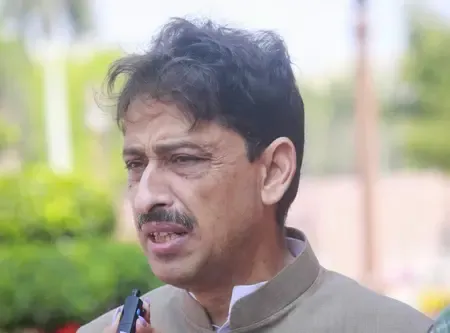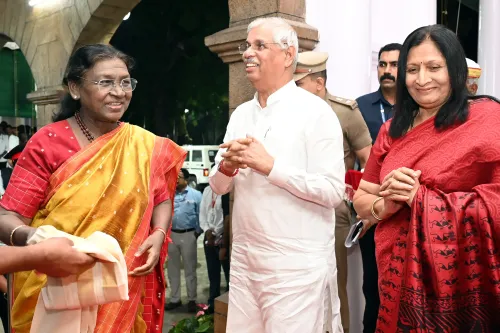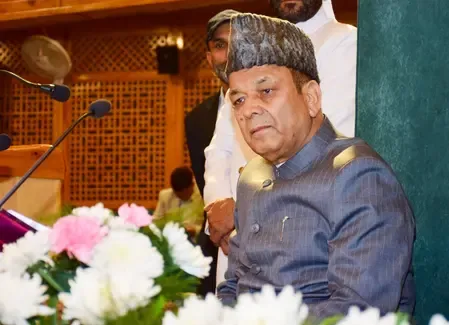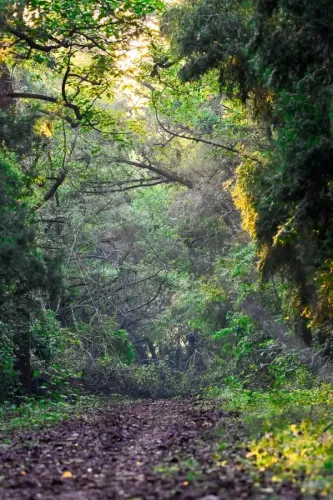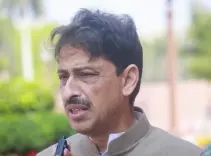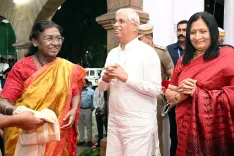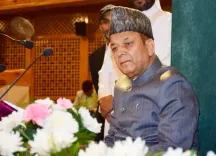Is AAP Blaming Diwali to Win Votes? Minister Sirsa Questions
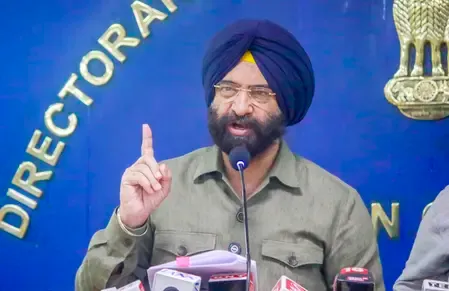
Synopsis
Key Takeaways
- AQICR rose by 11 points after Diwali.
- AAP accused of vilifying Hindu traditions.
- Use of green crackers was permitted this year.
- Connection between pollution and political strategies.
- Need for a collaborative approach to tackle pollution.
New Delhi, Oct 21 (NationPress) Pointing fingers at the ruling AAP for the farm fires in Punjab, Delhi's Forest and Environment Minister Manjinder Singh Sirsa stated on Tuesday that the air quality index (AQI) in the Capital increased by 11 points after Diwali and accused the party of tarnishing the Hindu festival to cater to its vote bank.
He further dismissed AAP’s request for artificial rain in the city, clarifying that while it remains an option, it can only be implemented under favorable cloud conditions.
During a media briefing, Sirsa criticized the former Aam Aadmi Party (AAP) and its ex-Chief Minister Arvind Kejriwal for maligning Diwali and Hindu traditions as the cause of the poor AQI surrounding the festival.
“Before Diwali, the AQI was 335 and after Diwali it was 356,” he remarked, noting that this year's celebrations, which included the Supreme Court-approved use of green crackers, did not significantly affect air quality.
“Historical data shows that the AQI deteriorated by 32 points after Diwali when there was no allowance for cracker usage,” he added.
The Environment Minister emphasized the need to separate the rise in AQI during Diwali from the tradition of bursting crackers.
“Data indicates that the allowance for green crackers this year contributed to an 11-point increase in AQI from Diwali to the following day,” he highlighted.
Sirsa accused Kejriwal of undermining Hindu sentiments by attributing the city's toxic air to Diwali celebrations while tolerating polluting activities from other communities, which are part of AAP's electoral base.
“AAP leaders are dragging Sanatan Dharma into the air pollution debate. They are blaming this celebration linked to Lord Ram, not realizing that Diwali is a festival of Sanatan Dharma, not just the BJP,” he stated, asserting that AAP leaders are tarnishing Sanatan Dharma for political gain.
“Arvind Kejriwal's team has continuously criticized Diwali... Sanjay Singh and his colleagues have been tweeting since last night, urging people to refrain from celebrating Diwali,” he noted.
Sirsa alleged that the AAP government in Punjab is part of a larger scheme to compromise air quality in Delhi during Diwali.
“Farmers in Punjab are being compelled to cover their faces to conceal their identities while burning paddy residue, which contributes to deteriorating air quality in Delhi,” he claimed, sharing a video.
His remarks came shortly after AAP leader Saurabh Bharadwaj called for cloud seeding to induce artificial rain in Delhi, asserting that Punjab's AQI was below 200 on Diwali, while it surged beyond 300 in the national Capital after the festivities.
Bharadwaj also engaged in a verbal tussle with the BJP, accusing the Delhi government of evading its promise to initiate artificial rain the day after Diwali to purify the air.
Sirsa mentioned that when Kejriwal was the Chief Minister of Delhi, he criticized Punjab farmers and their farm fires for the poor AQI in the NCR but failed to implement effective measures to tackle other pollution sources in the Capital.
Kejriwal has left behind a legacy of pollution spanning 27 years, while the Rekha Gupta government is striving to address the underlying causes of Delhi's pollution, the minister concluded.

